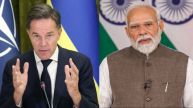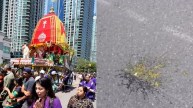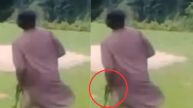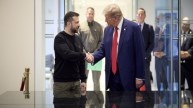Former Pakistani Foreign Minister Bilawal Bhutto’s offer to extradite Lashkar-e-Taiba (LeT) chief Hafiz Saeed and Jaish-e-Mohammed leader Masood Azhar has sparked fresh controversy in Pakistan. During an interview with Qatar-based Al Jazeera on Friday (4 July), he said that Pakistan had no objection to extraditing the key figures of the terrorist groups to India, provided New Delhi demonstrated “willingness” to cooperate. Reacting sharply to remarks Bhutto made, Talha, the son of Hafiz Saeed, accused him of making an “irresponsible offer”. Talha has also questioned Bhutto’s credibility. Now, was the offer to extradite terrorists a genuine one? Or was it merely a diplomatic gesture aimed at drawing India back to the negotiating table?
How Much Weight Do Bilawal’s Statements Carry?
The Pakistan Muslim League-Nawaz (PML-N), led by Prime Minister Shehbaz Sharif, heads Pakistan’s ruling coalition government alongside several allied parties. The Pakistan People’s Party (PPP), led by Bilawal Bhutto Zardari, holds significant influence within the coalition, governing Sindh and Balochistan and playing a key role at the federal level, with Bilawal’s father, Asif Ali Zardari, serving as President of Pakistan.
Bilawal Bhutto’s statement on extraditing Pakistani terrorists has drawn sharp criticism and sarcasm. Like Imran Khan’s party, Many dismiss him as an “immature political child” lacking practical political experience.
Indus Waters Treaty
Bilawal’s offer stands in sharp contrast to Bhutto’s earlier one. After India put the Indus Waters Treaty (IWT) in abeyance, Bhutto was seen issuing sharp, provocative statements publicly. He said, “I want to tell India that the Indus is ours and will remain ours. Either water will flow in this Indus, or their blood will.” Though the statement was sharp, India ignored his ‘Blood Will Flow’ If India Stops Water to Pakistan, Gets ‘Not A Drop’ Rebut. The current remark on terrorists’ extradition on an international level might be a diplomatic tactic of bringing India back to the negotiating table. Every time, Pakistan offers a gesture of peace, a betrayal always follows.
From the 1947-48 Kashmir invasion to the 1989 Kashmir insurgency, the 1999 Kargil War after Vajpayee’s Lahore visit, the 2001 Parliament attack, the 2008 Mumbai attacks, and the 2016 Pathankot attack following Modi’s Lahore visit, Pakistan has consistently responded to India’s peace efforts with aggression.
Where are Hafiz Saeed And Masood Azhar?
When asked about the whereabouts of Lashkar-e-Taiba (LeT) chief Hafiz Saeed and Jaish-e-Mohammed leader Masood Azhar, Bhutto said that Hafiz Saeed is in a Pakistani jail and Masood Azhar is in Afghanistan. Hafiz Talha Saeed, Saeed’s son, condemned Bilawal’s extradition remarks as against Pakistan’s state policy, national interest, and sovereignty in a statement issued in Lahore on Sunday.












